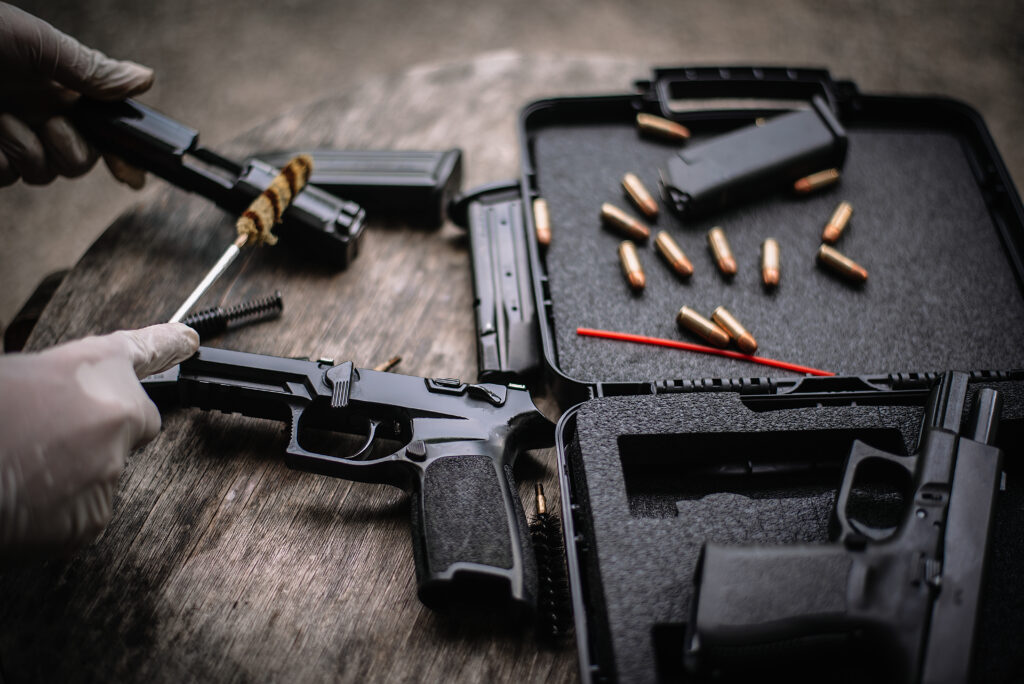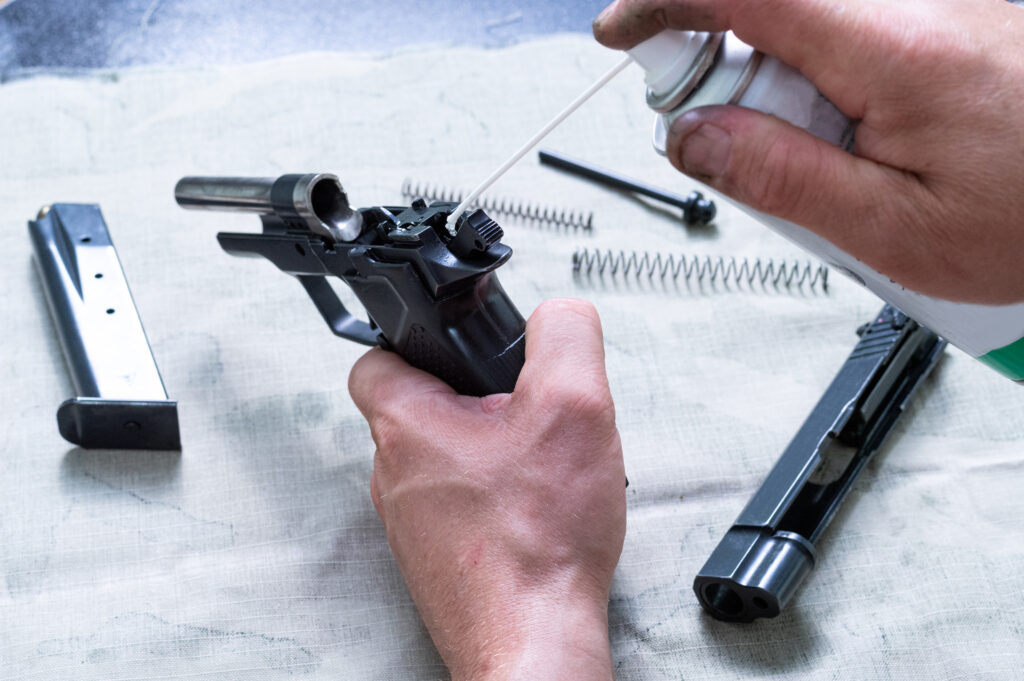Preventive maintenance and proper management of firearms are fundamental to ensure their reliability and safety. In this comprehensive guide, we will explore the most common causes of malfunctions and how to prevent them, providing practical solutions to keep your weapon in optimal condition at all times.
Common Causes of Malfunctions
Malfunctions can occur for various reasons, often related to maintenance or improper use of the weapon. Understanding the most frequent causes is the first step in preventing these potentially dangerous problems. Here are the most common factors that can cause malfunctions:
- Inadequate Maintenance – Buildup of residue and dirt
- Inappropriate Ammunition – Incompatible or poor quality
- Magazine Issues – Weakened springs or dirt
- Incorrect Grip – Causing “limp wristing”
- Worn Parts – Particularly springs and extractors
Preventive Maintenance
Proper preventive maintenance is essential to avoid most common problems. Establishing a regular cleaning and maintenance routine can make the difference between a reliable weapon and one prone to malfunctions. Here are the key aspects to consider:
- Regular cleaning after each shooting session
- Periodic inspection of critical parts
- Appropriate component lubrication
- Scheduled spring replacement
- Regular magazine checks
Proper Cleaning Procedures
Weapon cleaning is a fundamental operation that requires attention to detail and the use of appropriate products. Inadequate cleaning can be as harmful as lack of maintenance. It’s important to follow a systematic procedure to ensure each component receives proper attention:
- Preparation – Use a well-ventilated area and clean surface
- Basic Disassembly – Follow the manufacturer’s manual
- Barrel Cleaning – Use appropriate tools and proceed in the correct direction
- Critical Components – Pay special attention to extractor and firing pin
- Lubrication – Apply lubricant in the correct amounts and locations

Specific Problems and Solutions
Each type of malfunction requires a specific approach for its resolution. Knowing the most common symptoms and solutions can help quickly resolve any issues:
- Failure to Feed – Check magazine and feed ramp
- Failure to Extract – Verify extractor cleanliness
- Double Feed – Inspect magazine lips
- Light Strike – Check firing pin spring
- Irregular Ejection – Verify recoil spring tension
Best Practices for Prevention
Adopting good practices during weapon use and maintenance can prevent most common problems. It’s important to develop correct habits that become part of the daily weapon management routine:
- Pre-use Inspection – Visual and functional check before each session
- Documentation – Keep a maintenance and issue log
- Continuous Training – Stay updated on maintenance techniques
- Material Quality – Use only certified products and replacement parts
- Professional Support – Consult a gunsmith for complex problems

When to Seek Professional Assistance
While many problems can be resolved independently, there are situations where professional help is necessary. Recognizing these moments is fundamental for safety:
- Persistent malfunctions after basic maintenance
- Weapon safety-related issues
- Need to replace critical components
- Specific modifications or customizations
- Doubts about general weapon functionality
Professional Maintenance Products
Radar 1957 offers a complete line of professional products for proper maintenance and care of your weapon, specifically designed to prevent malfunctions and ensure maximum reliability:
- Professional cleaning kits
- Refined gun cleaning oil
- Maintenance accessories
- Safe storage solutions

